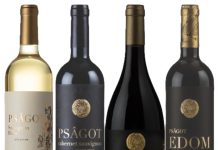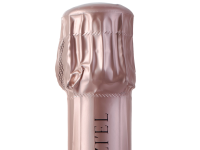An interesting Pesach product that will take on added relevance this year is egg matzah. Is egg matzah kosher l’Pesach? Can egg matzah be used to fulfill the biblical mitzvah of matzah on the night of the Seder? If you’re hungry for answers, read on.
The Gemara in Pesachim (36a) records a statement from Rebbe Akiva: “I lodged one Pesach by Rabbi Eliezer and Rabbi Yehoshua and I made matzah for them with dough kneaded with wine, oil, and honey, and they said nothing to me by way of objection.” Evidently, Rebbe Akiva is of the opinion that there is nothing wrong with wine matzah.
Yet, the Gemara records that Rebbe Akiva expounds that the reason the Torah refers to matzah as lechem oni, poor man’s bread, is to teach us that one may not knead flour with wine, oil, and honey for use as matzah. This indicates that Rebbe Akiva is of the opinion that one may not replace the water in matzah with wine.
The Gemara resolves this contradiction by explaining that matzah kneaded with flour, wine, or oil is not chametz but still may not be used to fulfill the mitzvah at the Seder. To fulfill the mitzvah of matzah at the Seder, the matzah must meet the additional criterion of being poor man’s bread.
This answer is codified by the Shulchan Aruch as practical halachah (462:1). One may consume wine matzah on Pesach. The Shulchan Aruch further rules that dough that has no water added but fruit juice or wine is not even capable of becoming chametz. If apple juice was added to flour, and it sat out the whole day without being baked, that dough would still not be chametz. One could then bake that dough and eat it on Pesach. However, one may not fulfill the mitzvah of matzah at the Seder with the product of that dough. The Shulchan Aruch deems that kind of matzah to be “matzah ashirah,” rich man’s bread.
The Shulchan Aruch rules that eggs have the same halachic quality as fruit juice. Eggs mixed with flour cannot produce chametz and one cannot fulfill the mitzvah of matzah at the Seder with egg matzah.
The fact that egg matzah is deemed matzah ashirah results in a leniency regarding erev Pesach. Some have a custom not to eat matzah for 30 days before Pesach. Some have a custom to stop eating matzah on Rosh Chodesh Nissan. However, everyone holds it is forbidden to eat matzah on erev Pesach. This is not simply a minhag, it is a rabbinic decree. However, the Shulchan Aruch rules that this decree does not apply to matzah ashirah. Egg matzah has a different taste than regular matzah and one does not fulfill his mitzvah on the Seder night with egg matzah. Therefore, one may eat egg matzah on erev Pesach. Tosfos records that Rabbeinu Tam himself used to eat egg matzah on erev Pesach even after the time that chametz was forbidden.
The Shulchan Aruch writes that egg matzah can solve the problem of what to eat early Shabbos afternoon for the third meal, when erev Pesach falls out on Shabbos. Chametz is forbidden by then, and matzah can’t be eaten the entire erev Pesach. The solution is to use egg matzah for the third Shabbos seudah.
What could be better for Pesach and erev Pesach than a matzah made from dough that cannot become chametz? What could possibly be the problem with egg matzah? The Shulchan Aruch adds a big caveat regarding the production of egg matzah. When water is added to fruit juice and flour, the resultant mixture can become chametz much quicker than just plain flour and water. This is such a major issue that the Shulchan Aruch rules that if some water fell into the juice-flour mixture, it must be baked immediately, without any delay. If not baked at that moment, it may rapidly turn into chametz. The same holds true for an egg-and-flour mixture.
The Rema comments that the custom in his area was not to consume egg matzah or matzah made with fruit juice at all. The Mishnah Berurah explains that the mixture of fruit juice or egg and flour is fraught with danger. Even a small amount of water inadvertently added may cause the mixture to rapidly become chametz. Perhaps some water was mixed in without anyone realizing it. Therefore, the Rema writes that the minhag is not to take any chances, and we do not consume any egg matzah over Pesach. This is the generally accepted Ashkenazi minhag. Egg matzah with a reliable hechsher is not chametz. But due to an abundance of caution when it comes to Pesach, Ashkenazic Jews will not eat it over Pesach. The Rema adds that in case of need (such as for a sick or elderly individual) egg matzah may be consumed. However, the average Ashkenazi individual must stop eating egg matzah at the same time he stops eating chametz, at four hours into the day.
This year, erev Pesach falls on Shabbos. Most chametz is burned, sold, or thrown out before Shabbos. One may use chametz challah for the Friday-night and Shabbos-day meals, provided he ensures that the chametz doesn’t scatter and is easily cleaned up. Furthermore, he must consume any chametz before four hours into the day on Shabbos morning. A nervous homeowner may prefer to substitute egg matzah for challah for the meals of this Shabbos. According to the letter of the law, egg matzah is not chametz and there is no reason to be concerned with crumbs. An Ashkenazic Jew would still need to stop eating egg matzah four hours into the day.
What should an Ashkenazic Jew consume for the third meal on Shabbos which is erev Pesach? He can’t use the Shulchan Aruch’s solution of egg matzah. The Aruch HaShulchan suggests that perhaps he eats nothing! Since one needs to have bread or a substitute for the third meal and that is not possible, one simply omits the third meal. This is similar to skipping the Shabbos meals when Yom Kippur falls out on Shabbos. Others say that one should eat fruits or vegetables and rely on the opinion that one still fulfills the third-meal requirement with them. Still others try to daven vasikin and cram two meals in the morning before four hours. The second meal would not have to end by the fourth hour, but the consumption of chametz would need to end by then.
Hope you enjoyed the sunny side of egg matzah, and hatch a decent plan for this year’s erev Pesach which falls on Shabbos.
Rabbi Avrohom Sebrow is a rebbe at Yeshiva Ateres Shimon in Far Rockaway. In addition, Rabbi Sebrow leads a daf yomi chaburah at Eitz Chayim of Dogwood Park in West Hempstead. He can be contacted at ASebrow@gmail.com.















